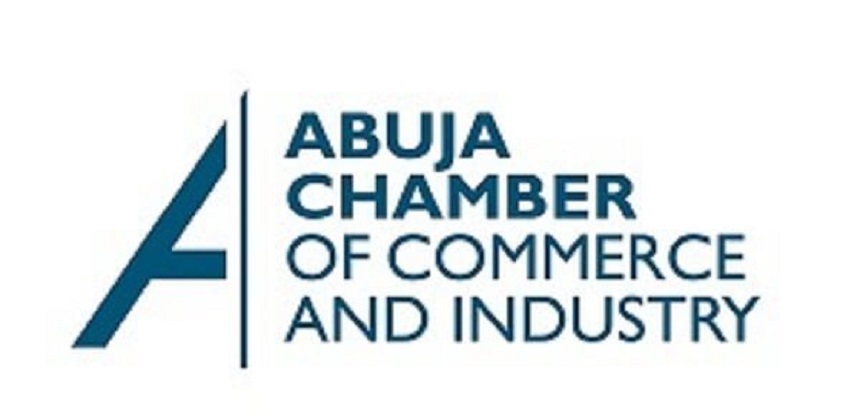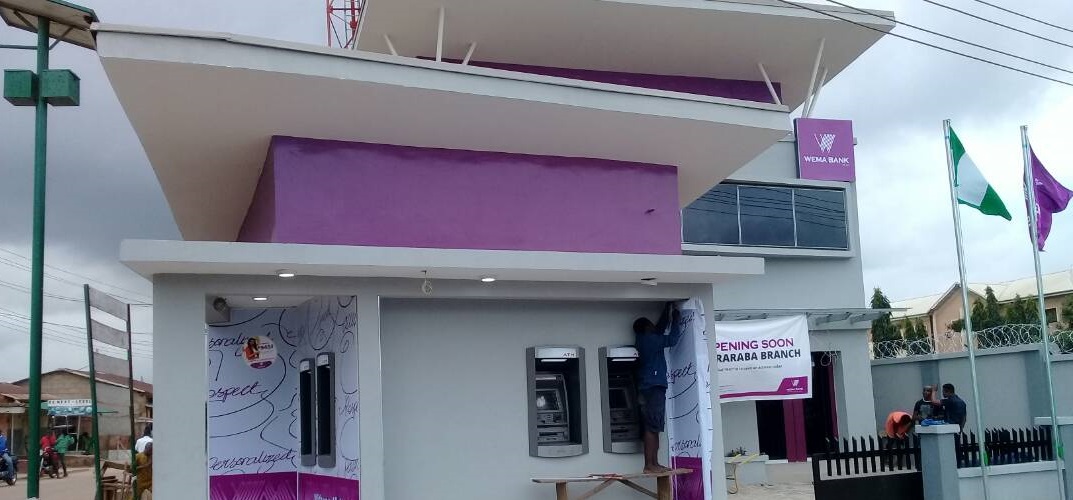Economy
Business Growth High on African Boardroom Agenda


By Dipo Olowookere
Africa’s CEOs are confident that the outlook for business on the continent remains positive notwithstanding the unpredictable economic and socio-political climate.
PwC’s Africa Business Agenda report shows that 85 percent of African CEOs (Global: 85%) are confident in their own company’s prospects for revenue growth over the next 12 months.
Despite the fact that only 30% of CEOs in Africa (Global: 29%) believe the global economy will improve in the next year, no less than 97% (Global: 91%) are confident about the prospects for their own company’s growth in the medium term.
Hein Boegman, CEO for PwC Africa, says: “This level of optimism is the highest recorded since we started our research on Africa CEOs in 2012. However, in the past year we have seen a change in the outlook for some countries as external developments impact many of the drivers of Africa’s growth.
“As countries around the globe try to make sense of the increased levels of risk and uncertainty that have gripped the world, Africa needs to continue rising by capitalising on all the opportunities that lie ahead.”
The report suggests that one of the reasons for such optimism on the Africa continent is that CEOs have learned to look for the upside and seize on opportunities that may arise in the face of uncertainty. In the wake of climate of muted growth, CEOs have also acknowledged that while they focus on organic growth and cost reductions, they also need to prioritise investment in new strategic alliances and joint ventures to expand their markets and grow their customer bases. According to the survey, organic growth (Africa: 80%; Global: 79%) and new alliances (Africa: 69%; Global: 48%) are the top activities CEOs are planning in order to drive corporate growth or profitability.
The Agenda compiles results from 80 interviews with CEOs across 11 countries in Africa and includes insights from business. The results are benchmarked against the findings of PwC’s 20th Annual Global CEO survey of 1 379 CEOs in 79 countries conducted during the 4th quarter of 2016. The Agenda provides an in-depth analysis and insights into how businesses are adopting to meet the challenges of operating in Africa.
Notwithstanding the current climate and challenges, it is notable that there remains a significant amount of potential to unlock more growth on the continent. African CEOs are looking to international markets for opportunities, with the US (31%), China (28%) and the UK (24%) considered the top three countries for growth. Johannesburg (36%), Lagos (16%) and Cape Town (14%) are considered the top three African cities for growth opportunities.
Main risks to doing business in Africa
Although the returns for doing business on the continent can be high, so too can the risks. Africa’s CEOs are working in difficult times – finding the right talent for their business, dealing with hurdles that come with working with governments, and managing expansion plans across the continent.
In addition, infrastructure remains a challenge as it lags well behind that of the rest of the world. More than two-thirds of African CEOs (69%) are concerned about inadequate basic infrastructure (Global: 54%) and a stronger focus on expanding power supply is required to solve one of the biggest challenges in the business environment.
Other clouds on the business horizon include exchange rate volatility (Africa: 90%; Global: 70%); social instability (Africa: 85%; Global: 68%); geopolitical instability (Africa: 79%; Global: 74%); unemployment (Africa: 79%; Global: 45%); and climate change and environmental damage (Africa: 64%; Global: 50%). For most of these factors, the level of concern among African CEOs is higher than the global average. In addition, over-regulation features on the list of concerns this year, with almost half (46%) (Global: 42%) of African CEOs saying they are “extremely concerned”.
CEOs also believe social instability resulting from inequality, an increasing tax burden, a lack of economic diversity with an overdependence on natural resources, and corruption remain problems in many countries.
Globalisation
Overall, globalisation has benefitted connectivity, trade and mobility. However, just over half of African business leaders say globalisation has done nothing to promote equality, in particular in closing the gap between rich and poor – in fact, this gap may well be widening.
A number of CEOs think it is vital to address social challenges. CEOs believe the corporate community can assist in spreading the benefits of globalisation more widely. The majority say the best way is to collaborate, particularly with government. “While Africa’s potential is undoubted, its achievement remains in question. Business, government and civil society will need to work harder to turn potential into tangible gains against the backdrop of a rapidly changing world,” Dion Shango, CEO of PwC Southern Africa adds.
Talent and technology
The forces of globalisation and technology are increasingly transforming the workplace. Over half of African CEOs (53%) are exploring the benefits of humans and machines working together in the workplace. Over a third of African CEOs (36%) are considering the impact of artificial intelligence on future skills needs.
In some sectors, automation has already replaced some jobs entirely. “As automation takes deeper root in the workplace, companies in Africa will have to increasingly focus on achieving the right cognitive re-apportionment between man and machine,” Shango adds.
However, as CEOs develop their services, they are finding that human interaction in the workplace is still important and place the investment in talent as a top business priority. Just over half of African CEOs (51%) plan to increase their headcount in the next 12 months. Conversely, 23% plan to cut their company’s headcount over the coming year, with more than two-thirds of expected reductions being attributed to automation and other technologies.
According to the survey results, no less than 80% of African CEOs (Global: 77%) see the availability of key skills as the biggest threat to growth (ahead of volatile energy costs and cyber threats). They are finding it particularly difficult to source soft skills – adaptability, problem solving, creativity and leadership.
Technology & trust
Technology has brought about a number of advancements in efficiency and the ease of doing business in Africa. No less than 91% of African respondents (Global: 90%) believe technology has changed competition in their industry in the past five years.
While the digital era offers a host of opportunities, it also creates significant challenges and constraints in the arena of privacy and security. Organisations are holding increasingly large volumes of personal data about their customers, suppliers and employees. According to the survey results, 71% of African CEOs (Global: 61%) say they are concerned about cyber threats. Furthermore, the vast majority of African CEOs (93%) (Global: 91%) believe that cybersecurity breaches affecting personal information or critical systems will negatively impact stakeholder trust levels in their organisations in the next five years. A high 96% of business leaders are also concerned that IT outages and disruptions could impair trust in their respective industries over the next five years.
As disruptions gain more speed, the ability to ensure trust, security and privacy across all interactions will become critical to businesses’ competitiveness. But almost two-thirds of African CEOs (61%) (Global: 59%) are concerned that they are not prepared to respond to a crisis in their business, should one arise.
“In the face of economic and socio-political uncertainty, we remain confident that the outlook for business in Africa remains positive. But to succeed, businesses need to adapt swiftly to change,” Shango concludes.
Economy
Adedeji Urges Nigeria to Add More Products to Export Basket

By Adedapo Adesanya
The chairman of the Nigeria Revenue Service (NRS), Mr Zacch Adedeji, has urged the country to broaden its export basket beyond raw materials by embracing ideas, innovation and the production of more value-added and complex products
Mr Adedeji said this during the maiden distinguished personality lecture of the Faculty of Administration, Obafemi Awolowo University (OAU), Ile-Ife, Osun State, on Thursday.
The NRS chairman, in the lecture entitled From Potential to Prosperity: Export-led Economy, revealed that Nigeria experienced stagnation in its export drive over three decades, from 1998 to 2023, and added only six new products to its export basket during that period.
He stressed the need to rethink growth through the lens of complexity by not just producing more of the same stuff, lamenting that Nigeria possesses a high-tech oil sector and a low-productivity informal sector, as well as lacking “the vibrant, labour-absorbing industrial base that serves as a bridge to higher complexity,” he said in a statement by his special adviser on Media, Dare Adekanmbi.
Mr Adedeji urged Nigeria to learn from the world by comparative studies of success and failure, such as Vietnam, Bangladesh, Indonesia, South Africa, and Brazil.
“We are not just looking at numbers in a vacuum; we are looking at the strategic choices made by nations like Vietnam, Indonesia, Bangladesh, Brazil, and South Africa over the same twenty-five-year period. While there are many ways to underperform, the path to success is remarkably consistent: it is defined by a clear strategy to build economic complexity.
“When we put these stories together, the divergence is clear. Vietnam used global trade to build a resilient, complex economy, while the others remained dependent on natural resources or a single low-tech niche.
“There are three big lessons here for us in Nigeria as we think about our roadmap. First, avoiding the resource curse is necessary, but it is not enough. You need a proactive strategy to build productive capabilities,” he stated, adding that for Nigeria, which is at an even earlier stage of development and even less diversified than these nations, the warning is stark.
“Relying solely on our natural endowments isn’t just a path to stagnation; it’s a path to regression. The global economy increasingly rewards knowledge and complexity, not just what you can dig out of the ground. If we want to move from potential to prosperity, we must stop being just a source of raw materials and start being a source of ideas, innovation, and complex products,” the taxman stated.
He added that President Bola Tinubu has already begun the difficult work of rebuilding the economy, building collective knowledge to innovate, produce, and build a resilient economy.
Economy
Nigeria Inaugurates Strategy to Tap into $7.7trn Global Halal Market

By Adedapo Adesanya
President Bola Tinubu on Thursday inaugurated Nigeria’s National Halal Economy Strategy to tap into the $7.7 trillion global halal market and diversify its economy.
President Tinubu, while inaugurating the strategy, called for disciplined, inclusive, and measurable action for the strategy to deliver jobs and shared prosperity across the country.
Represented by Vice-President Kashim Shettima, he described the unveiling of the strategy as a signal of Nigeria’s readiness to join the world in grabbing a huge chunk of the global halal economy already embraced by leading nations.
“As well as to clearly define the nation’s direction within the market, is expected to add an estimated $1.5 billion to the nation’s Gross Domestic Product (GDP) by 2027. It is with this sense of responsibility that I formally unveil the Nigeria National Halal Economy Strategy.
“This document is a declaration of our promise to meet global standards with Nigerian capacity and to convert opportunity into lasting economic value. What follows must be action that is disciplined, inclusive, and measurable, so that this Strategy delivers jobs, exports, and shared prosperity across our nation.
“It is going to be chaired by the supremely competent Minister of Industry, Trade and Investment.”
The president explained that the halal-compliant food exports, developing pharmaceutical and cosmetic value chains would position Nigeria as a halal-friendly tourism destination, and mobilising ethical finance at scale,” by 2030.
“The cumulative efforts “are projected to unlock over twelve billion dollars in economic value.
“While strengthening food security, deepening industrial capacity, and creating opportunities for small-and-medium-sized enterprises across our states,” he added.
Allaying concerns by those linking the halal with religious affiliation, President Tinubu pointed out that the global halal economy had since outgrown parochial interpretations.
“It is no longer defined solely by faith, but by trust, through systems that emphasise quality, traceability, safety, and ethical production. These principles resonate far beyond any single community.
“They speak to consumers, investors, and trading partners who increasingly demand certainty in how goods are produced, financed, and delivered. It is within this broader understanding that Nigeria now positions itself.”
Tinubu said many advanced Western economies had since “recognised the commercial and ethical appeal of the halal economy and have integrated it into their export and quality-assurance systems.”
President Tinubu listed developed countries, including the United Kingdom, France, Germany, the Netherlands, the United States, Canada, Australia, and New Zealand.
“They are currently among the “leading producers, certifiers, and exporters of halal food, pharmaceuticals, cosmetics, and financial products.”
He stated that what these developed nations had experienced is a confirmation of a simple truth, that “the halal economy is a global market framework rooted in standards, safety, and consumer trust, not geography or belief.”
The president explained that the Nigeria national halal economy strategy is the result of careful study and sober reflection.
He added that it was inspired by the commitment of his administration of “to diversify exports, attract foreign direct investment, and create sustainable jobs across the federation.
“It is also the product of deliberate partnership, developed with the Halal Products Development Company, a subsidiary of the Saudi Public Investment Fund.
“And Dar Al Halal Group Nigeria, with technical backing from institutions such as the Islamic Development Bank and the Arab Bank for Economic Development in Africa.”
The Minister of Industry, Trade and Investment, Mrs Jumoke Oduwole, said the inauguration of the strategy was a public-private collaboration that has involved extensive interaction with stakeholders.
Mrs Oduwole, who is the Chairperson, National Halal Strategy Committee, said that the private sector led the charge in ensuring that it is a whole-of-government and whole-of-country intervention.
The minister stressed that what the Halal strategy had done for Nigeria “is to position us among countries that export Halal-certified goods across the world.
The minister said, “We are going to leverage the African Continental Free Trade Area (AfCFTA) to ensure that we export our Halal-friendly goods to the rest of Africa and beyond to any willing markets; participation is voluntary. “
She assured that as the Chairperson, her ministry would deliver on the objectives of the strategy for the prosperity of the nation.
The Chairman of Dar Al-Halal Group Nigeria L.td, Mr Muhammadu Dikko-Ladan, explained that the Halal Product Development Company collaborated with the group in developing the strategy.
“In addition to the strategy, an export programme is underway involving the Ministry of Trade and Investment, through which Nigerian companies can be onboarded into the Saudi Arabian market and beyond.£
Mr Dikko-Ladan described the Strategy as a landmark opportunity for Nigeria, as it creates market access and attracts foreign direct investment.
Economy
UK, Canada, Others Back New Cashew Nut Processing Plant Construction in Ogun

By Adedapo Adesanya
GuarantCo, part of the Private Infrastructure Development Group (PIDG), has provided a 100 per cent guarantee to support a $75 million debt facility for Robust International Pte Ltd (Robust) to construct a new cashew nut processing plant in Ogun State, Nigeria.
GuarantCo, under the PIDG is funded by the United Kingdom, the Netherlands, Switzerland, Australia, Sweden and Canada, mobilises private sector local currency investment for infrastructure projects and supports the development of financial markets in lower-income countries across Africa and Asia.
Nigeria is one of Africa’s largest cashew producers of 300,000 tonnes of raw cashew nuts annually, yet currently less than 10 per cent are processed domestically. Most raw nuts are exported unprocessed to Asian and other countries, forfeiting up to 80 per cent of their potential export value and adding exposure to foreign exchange fluctuations.
According to GuarantCo, this additional plant will more than double Robust’s existing cashew processing capacity from 100 metric tonnes per day to 220 metric tonnes per day to help reduce this structural gap.
The new plant will be of extensive benefit to the local economy, with the procurement of cashew nuts from around 10,000 primarily low-income smallholder farmers.
There is an expected increase in export revenue of up to $335 million and procurement from the local supply chain over the lifetime of the guarantee.
Furthermore, the new plant will incorporate functionality to convert waste by-products into value-added biomass and biofuel inputs to enhance the environmental impact of the transaction.
It is anticipated that up to 900 jobs will be created, with as many as 78 per cent to be held by women. Robust also has a target to gradually increase the share of procurement from women farmers, from 15 per cent to 25 per cent by 2028, as it reaches new regions in Nigeria and extends its ongoing gender-responsive outreach programme for farmers.
Terms of the deal showed that the debt facility was provided by a Symbiotics-arranged bond platform, which in turn issued notes with the benefit of the GuarantCo guarantee. These notes have been subscribed to in full by M&G Investments. The transaction was executed in record time due to the successful replication of two recent transactions in Côte d’Ivoire and Senegal, again in collaboration with M&G Investments and Symbiotics.
Speaking on the development, the British Deputy High Commissioner, Mr Jonny Baxter, said: “The UK is proud to support innovative financing that mobilises private capital into Nigeria’s productive economy through UK-backed institutions such as PIDG. By backing investment into local processing and value addition, this transaction supports jobs, exports and more resilient agricultural supply chains. Complementing this, through the UK-Nigeria Enhanced Trade and Investment Partnerships and the Developing Countries Trading Scheme, the UK is supporting Nigerian businesses to scale exports to the UK and beyond, demonstrating how UK-backed partnerships help firms grow and compete internationally.”
Mr Dave Chalila, Head of Africa and Middle East Investments at GuarantCo, said: “This transaction marks GuarantCo’s third collaboration with M&G Investments and Symbiotics, emphasising our efforts to bring replicability to everything we do so that we accelerate socio-economic development where it matters most. The transaction is consistent with PIDG’s mandate to mobilise private capital into high-impact, underfinanced sectors. In this case, crowding in institutional investors in the African agri-processing value chain.
“As with the two recent similarly structured transactions, funding is channelled through the Symbiotics institutional investor platform, with the notes externally rated by Fitch and benefiting from a rating uplift due to the GuarantCo guarantee.”
Adding his input, Mr Vishanth Narayan, Group Executive Director at Robust International Group, said: “As a global leader in agricultural commodities, Robust International remains steadfast in its commitment to building resilient, ethical and value-adding supply chains across origin and destination markets. This transaction represents an important step in advancing our long-term strategy of strengthening processing capabilities, deepening engagement with farmers and enhancing local value addition in the regions where we operate. Through sustained investment, disciplined execution and decades of operating experience, we continue to focus on delivering reliable, high-quality products while fostering inclusive and sustainable economic growth.”
For Ms María Redondo, director at M&G Investments, “The guarantee gives us the assurance to invest in hard currency, emerging market debt, while supporting Robust’s new cashew processing plant in Nigeria. It’s a clear example of how smart credit enhancement can unlock institutional capital for high-impact development and manage currency and credit risks effectively. This is another strong step in channelling institutional capital into meaningful, on‑the‑ground growth.”
Also, Ms Valeria Berzunza, Structuring & Arranging at Symbiotics, said: “We are pleased to continue our collaboration with M&G Investments, GuarantCo, and now with Robust through a transaction with a strong social and gender focus, demonstrating that well-structured products can boost commercially attractive, viable, and impactful investments.”
-

 Feature/OPED6 years ago
Feature/OPED6 years agoDavos was Different this year
-
Travel/Tourism9 years ago
Lagos Seals Western Lodge Hotel In Ikorodu
-

 Showbiz3 years ago
Showbiz3 years agoEstranged Lover Releases Videos of Empress Njamah Bathing
-

 Banking8 years ago
Banking8 years agoSort Codes of GTBank Branches in Nigeria
-

 Economy3 years ago
Economy3 years agoSubsidy Removal: CNG at N130 Per Litre Cheaper Than Petrol—IPMAN
-

 Banking3 years ago
Banking3 years agoSort Codes of UBA Branches in Nigeria
-

 Banking3 years ago
Banking3 years agoFirst Bank Announces Planned Downtime
-

 Sports3 years ago
Sports3 years agoHighest Paid Nigerian Footballer – How Much Do Nigerian Footballers Earn


















